Chicago’s boating scene is unique, influenced by Lake Michigan’s vast waters and the city’s seasonal weather patterns. The market has specific factors that affect boat values and optimal selling times. Let’s explore all about selling your boat in Chicago!
Factors Influencing Boat Sales
- Boat condition is the primary factor affecting your vessel’s value in Chicago. Well-maintained boats with recent service records can command premium prices. The Chicago Boaters Marketplace shows that boats with newer electronics and updated features sell faster.
- Boat type matters significantly. Fishing boats and cruisers designed for Lake Michigan’s sometimes choppy waters are in higher demand. According to industry data, the marine market reached $57.7 billion in sales in 2023, showing strong buyer interest.
- Location also impacts boat values. Vessels docked at premium Chicago harbors often carry higher asking prices due to their prestigious mooring history and typically better maintenance.
Seasonal Trends in Chicago
- The prime selling season in Chicago runs from March through July. This timing allows buyers to enjoy most of the boating season after purchase. List your boat early in this window to maximize exposure and potential offers.
- The Progressive Chicago Boat Show (January 8-12, 2025) marks the unofficial start of the buying season. Many sellers prepare their listings right after this event to capture motivated buyers.
- Winter listings typically generate less interest and lower offers. However, serious buyers shopping off-season may pay premium prices for well-maintained vessels if they’re seeking specific models.
- To sell your boat effectively, timing is crucial. Consider marketing your vessel just before peak season, when inventory is low but buyer interest is rising.
Setting a Competitive Asking Price
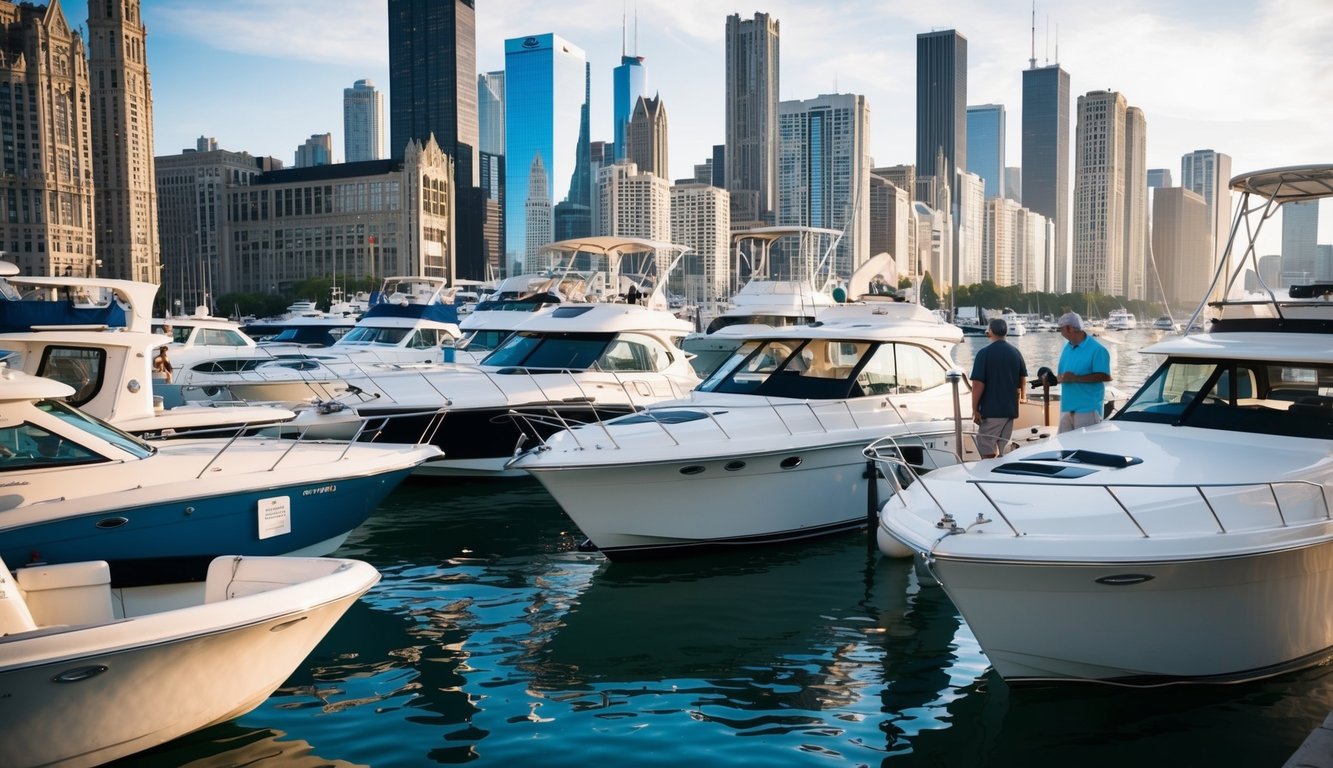
Determining the right asking price is crucial to attract buyers and maximize your return when selling your boat in Chicago. A well-researched price balances market reality with your financial goals.
Evaluating Your Boat’s Value
- Start by examining your boat’s specific features and condition. Age, make, model, engine hours, and recent upgrades all impact value. Be honest about wear and tear issues that might affect pricing.
- Professional appraisals can provide an objective valuation baseline. Many Chicago marinas offer appraisal services, typically costing $200-500 depending on boat size.
- Consider seasonality in Chicago’s boating market. Boats typically sell faster and at higher prices in spring as buyers prepare for summer on Lake Michigan.
- Document all maintenance records and improvements. Well-maintained boats with proof of regular service can command premium prices over similar vessels with unknown histories.
Comparative Market Analysis
- Research similar boats currently for sale in the Chicago area. Examine listings on major boating marketplaces to see asking prices for comparable vessels.
- Look at both the initial asking price and final sales prices when possible. The gap between these figures reveals negotiation expectations in the current market.
- In Chicago’s competitive market, consider working with a broker who can provide insight on local pricing trends. Many sellers through consignment services benefit from professional pricing guidance.
- Be strategic about your price point. Setting slightly below round numbers (like $19,900 instead of $20,000) can make your listing appear in more search filters and attract additional interest.
Preparing Your Boat for Sale

Getting your boat ready for sale requires attention to detail and strategic improvements. Proper preparation can significantly increase your boat’s value and appeal to potential buyers in the Chicago market.
Maintenance and Repairs
- Addressing mechanical issues is essential before listing your boat. Regular maintenance not only keeps your vessel functioning properly but also boosts its resale value. Check your engine’s condition and consider getting a professional inspection to identify any problems.
- Fix any electrical issues, as these are common concerns for buyers. Replace old batteries, test navigation lights, and ensure all gauges work correctly. This shows buyers your boat is well-maintained.
- Address any hull damage promptly. Even minor scratches can give the impression of neglect. Repair or replace worn upholstery and canvas components.
- Keep maintenance records organized. Detailed documentation of service history reassures buyers about your boat’s condition and care. This small step can make a big difference in selling price and time on market.
Cleaning and Detailing
Research shows clean boats sell faster. A thorough cleaning makes your vessel more attractive to potential buyers and signals proper maintenance.
Exterior cleaning checklist:
- Wash and wax the hull
- Remove water stains and rust
- Clean windows and clear plastic
- Polish chrome and metal fixtures
The interior deserves equal attention. Clear out personal items and clutter to make spaces appear larger. Deep clean carpets, cushions, and all storage areas. Consider having your boat professionally detailed before taking photos or showing it to prospects. This investment typically delivers a strong return by attracting more interested buyers.
Don’t forget the engine compartment. A clean engine bay suggests meticulous care and maintenance. Take time to remove oil stains, dust, and debris that may have accumulated over time.
Marketing Strategies to Attract Buyers
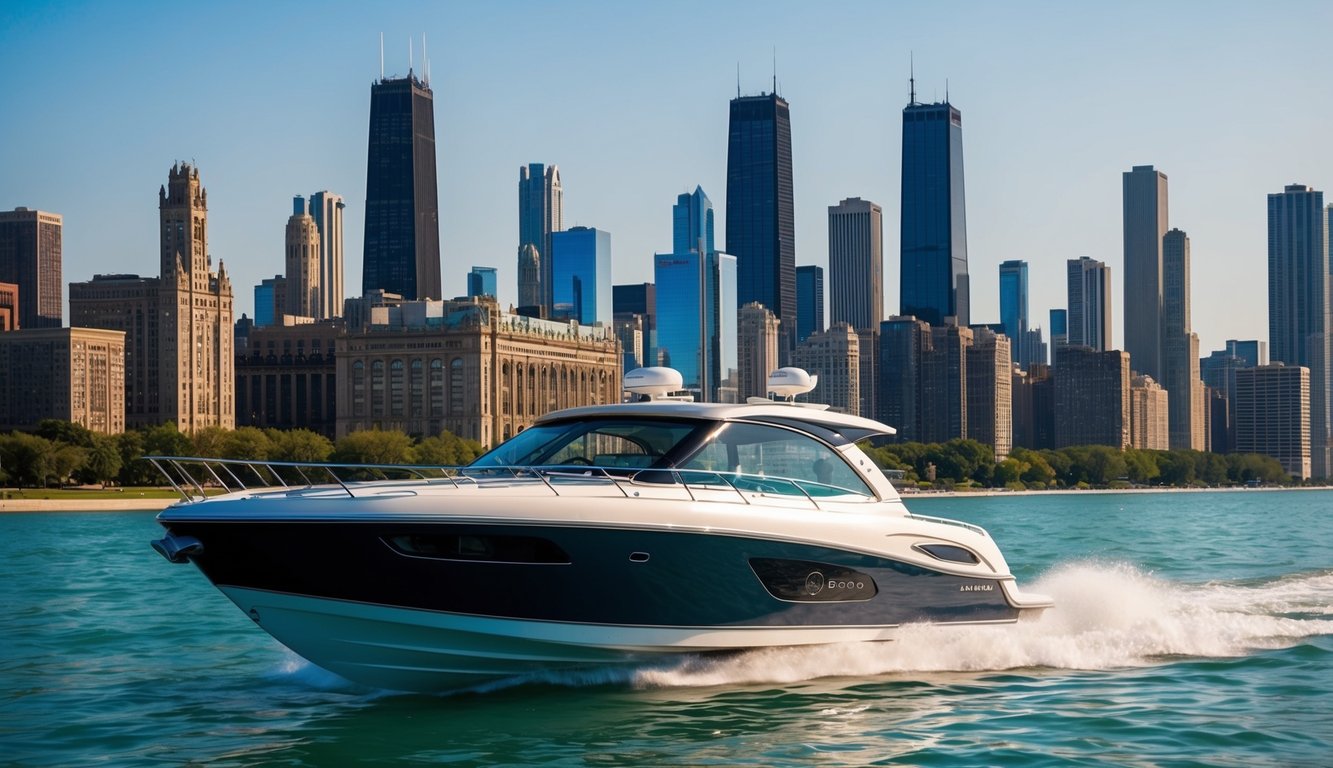
Effective marketing makes all the difference when selling your boat in Chicago’s competitive market. Strategic promotion showcases your vessel to serious buyers and helps you secure a better sale price.
Listing Platforms and Advertisement
- Start by listing your boat on specialized marine marketplaces where boat buyers actively search. TheYachtMarket and similar platforms connect you directly with interested parties.
- Consider local Chicago boating forums and Facebook groups focused on Lake Michigan boating. These targeted communities often yield serious inquiries from local buyers.
- Print materials still work effectively in the boating community. Create professional flyers and distribute them at Chicago marinas, boat clubs, and local boating events. Many enthusiasts still appreciate physical advertisements.
- Don’t overlook paid advertising on social media platforms. Facebook and Instagram ads can be narrowly targeted to users in Chicago with boating interests, maximizing your marketing budget.
Creating Engaging Listings
High-quality photographs are non-negotiable when you sell your boat. Capture your vessel from multiple angles in good lighting, including interior shots and engine compartments. Clean and detail your boat before photographing. Be transparent about pricing. Listings with clear prices attract more serious buyers and reduce time-wasting inquiries. Research comparable boats to set a competitive yet profitable price point.
Include comprehensive details in your description:
- Boat make, model, and year
- Engine hours and maintenance history
- Recent upgrades or repairs
- Included equipment and accessories
- Reason for selling
Highlight unique selling points relevant to Chicago boaters, such as suitability for Lake Michigan conditions or winter storage solutions. Be honest about any flaws—transparency builds trust with potential buyers.
Working with a Boat Broker
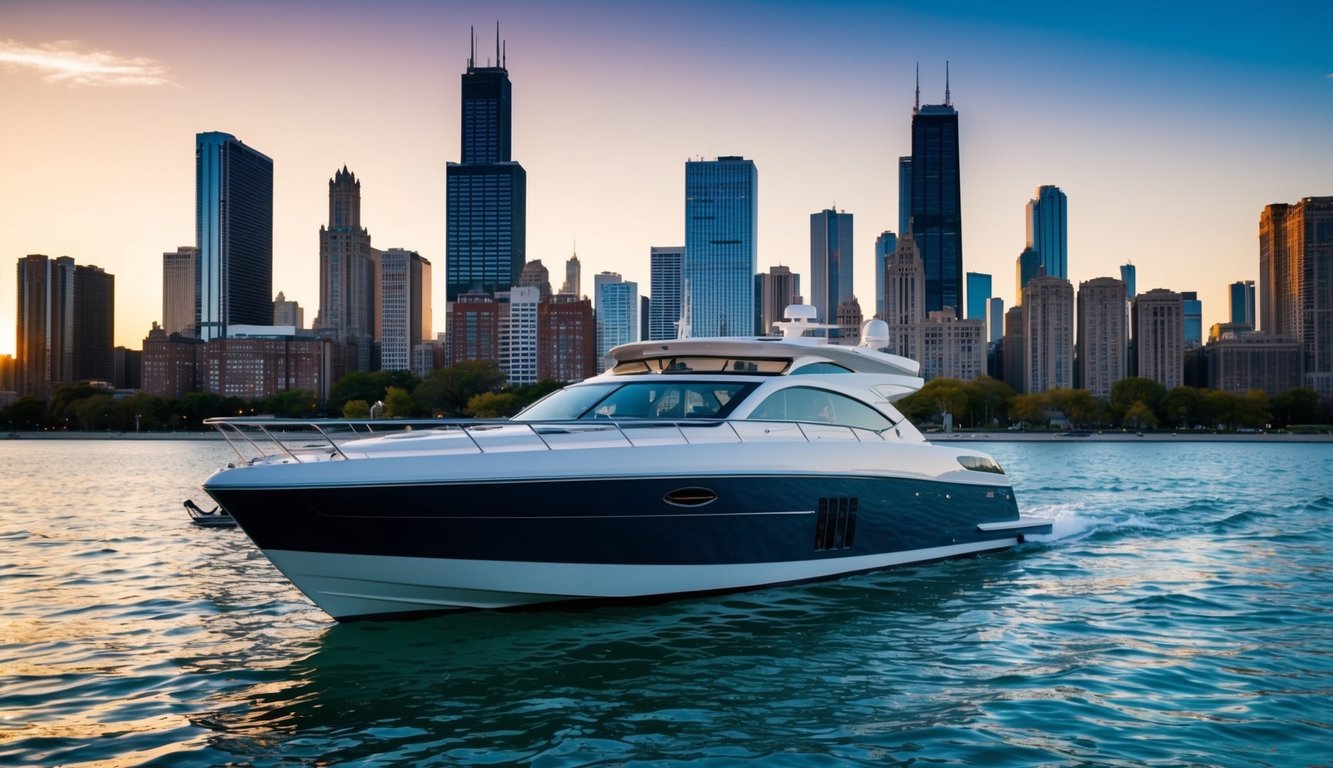
Partnering with a boat broker can simplify the selling process and potentially increase your final sale price. Brokers bring market knowledge and professional networks that individual sellers often lack.
Pros and Cons of Brokerage
Pros:
- Marketing Reach: Brokers have access to multiple listing services and buyer networks not available to private sellers.
- Price Guidance: They can help you determine a fair asking price based on current market conditions.
- Paperwork Management: They handle complex documentation, titles, and legal requirements.
- Showing Coordination: Brokers manage potential buyer interactions, saving you time and hassle.
Cons:
- Commission Costs: Typically 10% of the sale price, cutting into your profits.
- Less Control: You might have reduced input on marketing strategies.
- Varying Commitment: Some brokers may prioritize higher-value listings.
Selecting a Reputable Broker
- Start by researching brokers with strong Chicago and Great Lakes experience. Proven results and commitment should be key factors in your decision.
- Look for brokers affiliated with established yacht yards like Crowley’s Yacht Yard or full-service companies that offer comprehensive assistance.
- Check broker credentials and certifications. Membership in professional organizations indicates commitment to ethical standards.
- Request their marketing strategy. Good brokers will outline specific plans to enhance your boat’s value and exposure.
- Ask about their commission structure upfront and get everything in writing. Most importantly, choose someone you trust and communicate well with.
Legal and Financial Considerations
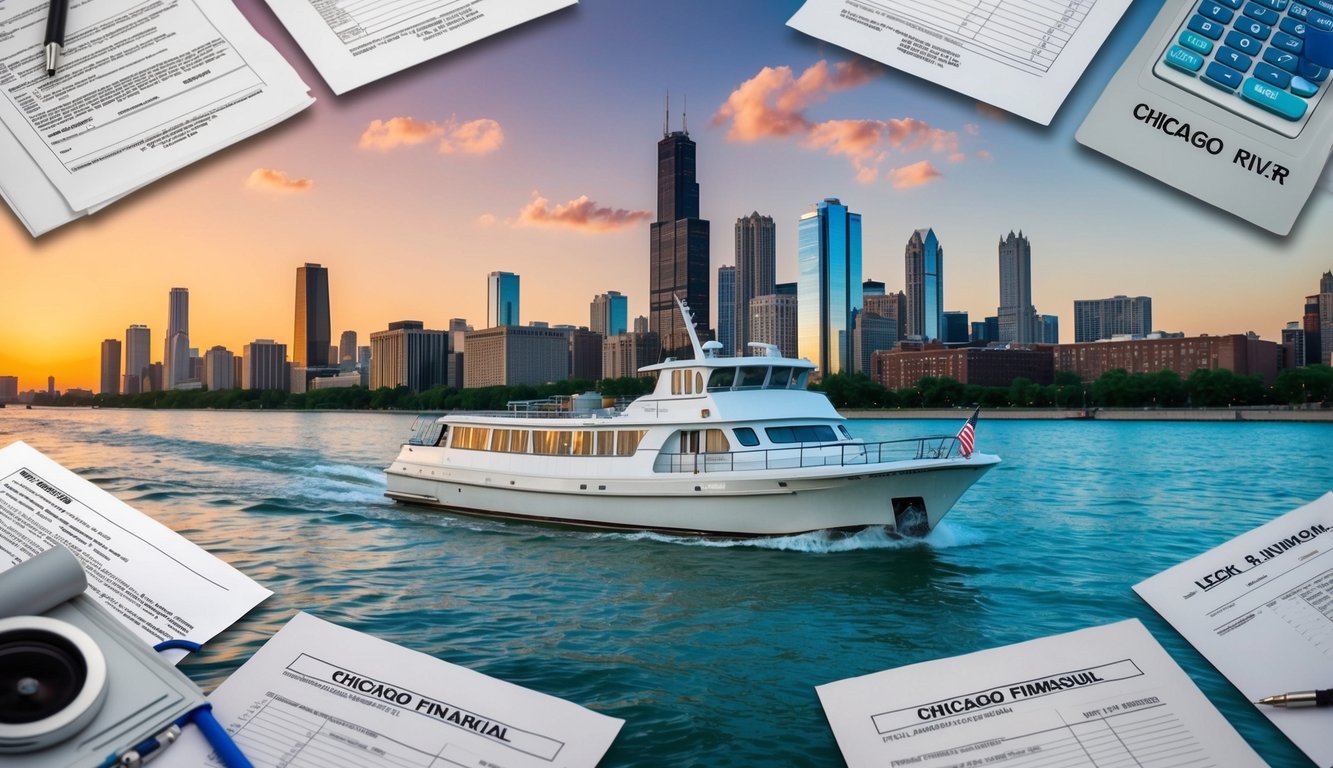
When selling your boat in Chicago, proper documentation and understanding of ownership transfer are crucial to protect both parties and ensure a smooth transaction.
Drafting a Sales Agreement
A well-crafted purchase agreement is essential when selling your boat. This document should clearly outline the terms of sale, including the final price, payment method, and condition of the vessel.
Include specific details about your boat such as:
- Hull identification number (HIN)
- Make and model
- Year built
- Engine hours and specifications
- List of included equipment and accessories
Be sure to document any known defects or issues with the boat. This transparency protects you from future claims and builds trust with your buyer. Consider adding contingency clauses for sea trials, marine surveys, or financing approval. These protect both parties if unexpected issues arise during the sale process.
Transfer of Ownership
Properly transferring ownership involves several important documents. You’ll need to provide the buyer with a signed title or, for documented vessels, complete the U.S. Coast Guard transfer forms.
For boats registered in Illinois, you must:
- Complete a bill of sale
- Sign over the title to the new owner
- Remove your registration numbers if the buyer is from another state
The Illinois Department of Natural Resources requires notification within 15 days when you sell your boat. This protects you from liability for any incidents that might occur after the sale. If there’s an existing loan on your vessel, you’ll need to coordinate with your lender to release the lien once the boat is paid off. Make sure to request a lien release document for your records.
Closing the Sale Successfully
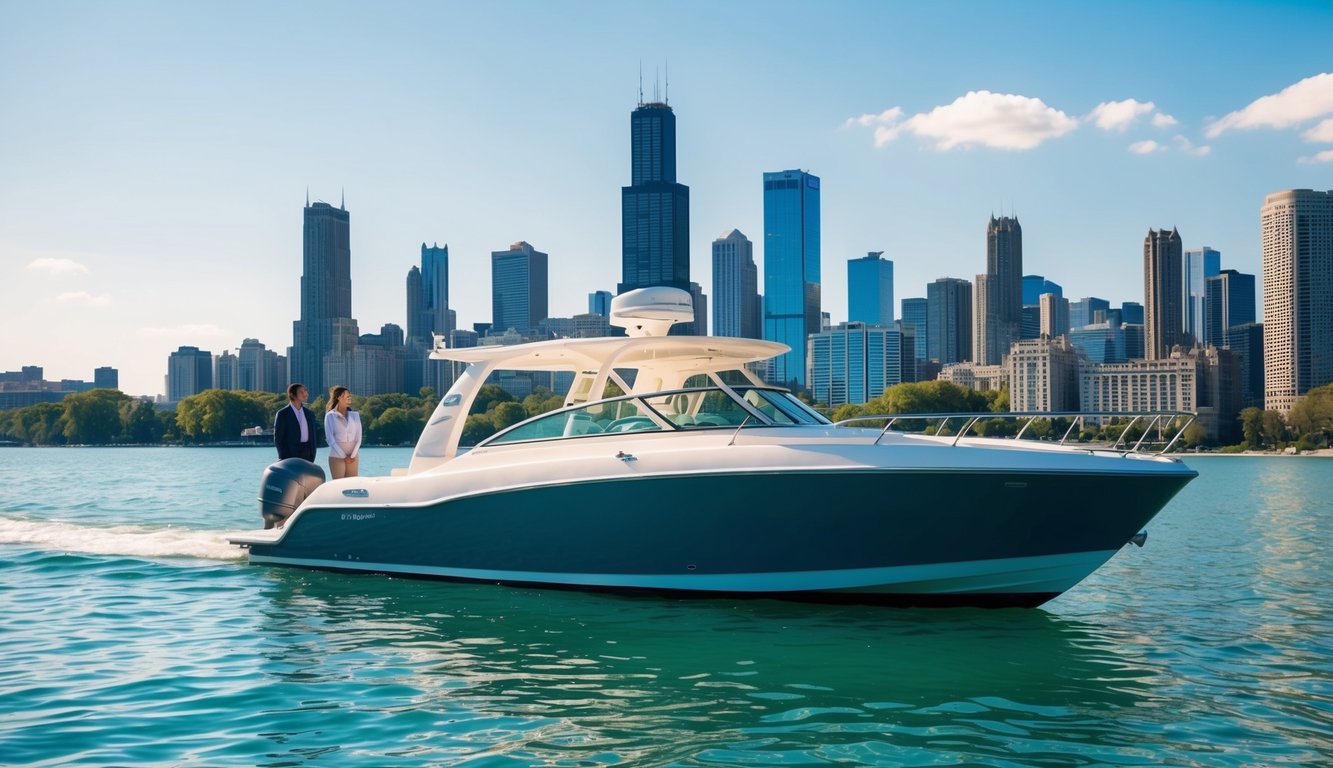
The final steps of selling your boat require careful navigation of negotiations and paperwork to secure the best price. Proper preparation for these conversations can significantly impact your final sale amount.
Negotiating with Potential Buyers
When potential buyers make offers on your boat, stay calm and focused. Having documentation of recent upgrades and maintenance records ready will justify your asking price. Set a minimum acceptable price beforehand and stick to it. This prevents emotional decisions during negotiations.
Be prepared to explain why your boat is worth the asking price. Highlight unique features, recent improvements, and low engine hours when discussing price. Consider offers carefully – a quick sale at a slightly lower price might be better than months of storage costs and depreciation.
Counter-offer tips:
- Respond promptly to all offers
- Make counter-offers in writing
- Stay professional even if offers seem low
- Be willing to compromise on minor items
Finalizing the Deal
Once you’ve agreed on a price, create a clear sales agreement. This document should detail the boat’s condition, included equipment, and payment terms. Many boat sales in Chicago require a sea trial and inspection. Prepare your boat to look its best and address any minor issues beforehand.
Have all necessary paperwork organized:
- Boat title
- Maintenance records
- Warranty information
- Bill of sale
Consider escrow services for larger transactions to protect both parties. This gives buyers confidence and protects you until funds clear. Transfer all ownership documents properly to avoid future liability issues. The Illinois Department of Natural Resources requires specific forms for boat registration transfers. After the sale, provide the new owner with operation manuals and a walkthrough of systems to ensure a smooth final delivery.
Post-Sale Responsibilities
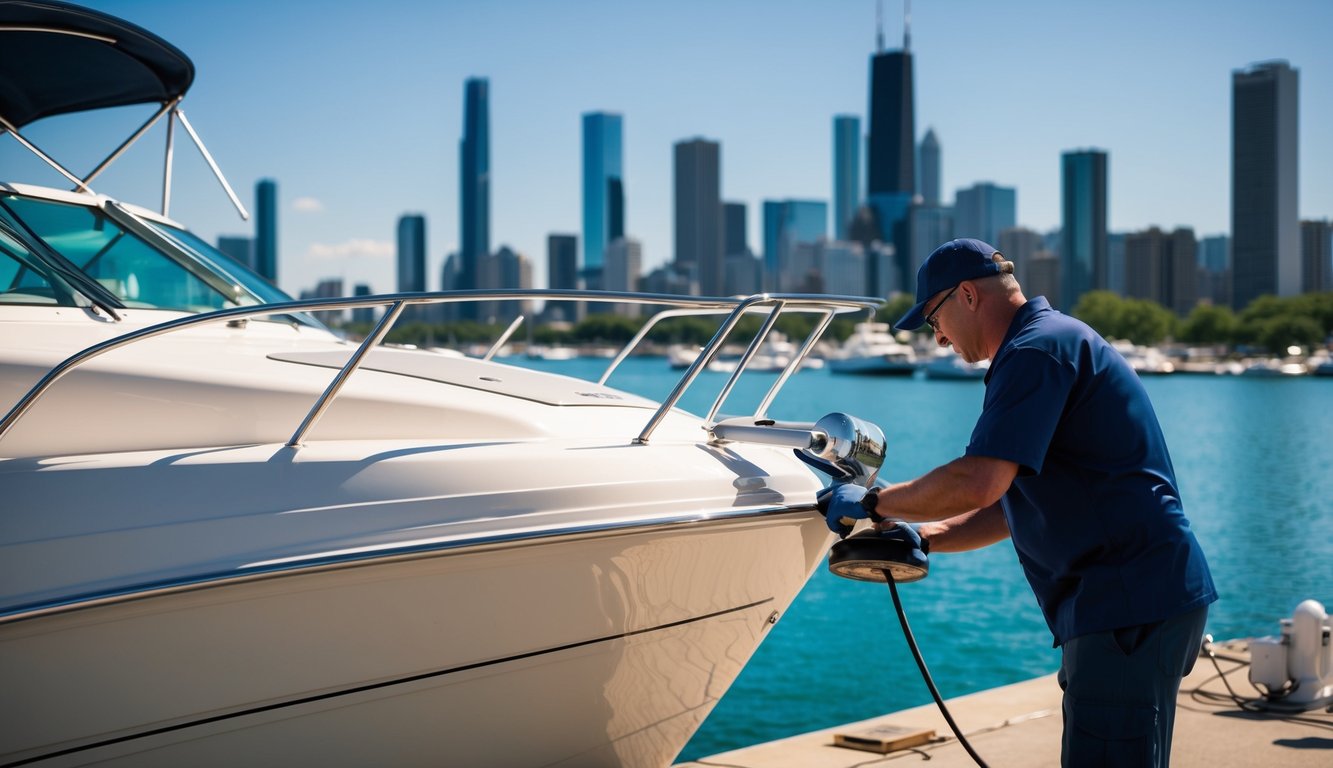
After successfully selling your boat in Chicago, you still have important tasks to complete. Proper handover and ongoing support will ensure a smooth transition for the buyer and protect you from future liabilities.
Handover and Delivery
Document all aspects of the boat transfer with thorough paperwork. Create a detailed bill of sale that includes the vessel’s identification number, purchase price, date of sale, and both parties’ signatures. You must transfer the title properly to avoid future legal issues. Remove all personal belongings from the boat before delivery. This includes safety equipment you’re not including in the sale, fishing gear, and personal electronics.
Provide the new owner with:
- Owner’s manuals and maintenance records
- Warranty documentation
- Keys (including spares)
- Registration documents
- Service history
- Contact information for your mechanic
Schedule a walkthrough with the buyer to demonstrate how systems work. Show them engine operation, electronics, plumbing, and any quirks specific to your vessel.
Post-Sale Service and Support
- Be available to answer questions after the sale. New owners often have questions about boat operation that weren’t covered during the handover. Providing this support helps ensure a positive experience for the buyer.
- Consider offering a brief follow-up call or meeting a week after purchase. This courtesy builds goodwill and allows you to address any issues that might have emerged.
- Share contacts for reliable service providers. Your network of mechanics, cleaners, and storage facilities in the Chicago area is valuable to new owners.
- If you sold through a broker, understand their post-sale responsibilities. Many brokers offer post-sale support as part of their service package, which can reduce your personal involvement.
- Be upfront about any warranty transfers. If your boat has remaining manufacturer warranties, provide clear instructions on how these can be transferred to the new owner.




